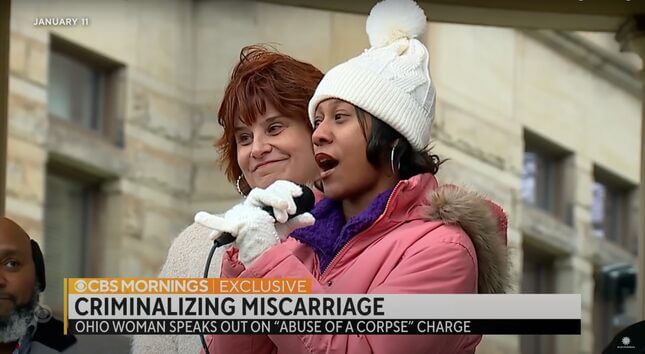Black Woman Who Was Charged for Miscarriage Was Reported to Cops by Her Nurse
In the audio of the 911 call obtained by CBS, the nurse tells police that Brittany Watts “didn’t want to look” at her fetal remains as evidence of wrongdoing.


About two weeks after an Ohio jury decided not to charge Brittany Watts with a felony abuse of a corpse charge for having a miscarriage at 22 weeks, Watts gave her first interview on Friday. In the interview with CBS, Watts, a Black woman, recounted her three experiences at Mercy Health in Warren, Ohio, which culminated in a nurse calling the police on her when she came in after having a miscarriage—even as the nurse offered Watts reassurance to her face. In the audio of the call, obtained by CBS, the nurse tells police that Watts “didn’t want the baby” as evidence of supposed wrongdoing.
Watts miscarried in late September while using the restroom in her home, then flushed the fetal remains down her toilet. The nurse called the police when she came to the hospital bleeding and said she was no longer pregnant. This prompted police to visit Watts’ house days later, recover the fetal remains, and arrest her, charging her with felony abuse of a corpse—even though a forensic pathologist testified in November that her fetus was not born alive and had not been viable. Still, Watts faced up to one year in prison, a fine of up to $2,500, and a felony on her record, until a jury declined to charge her earlier this month.
-

-

-

-

-

-

-

-

-

-

-

-

-

-

-

-

-

-

-

-

-

-

-

-

-

-

-

-

-

-

-

-

-

-

-

-

-

-

-

-








































